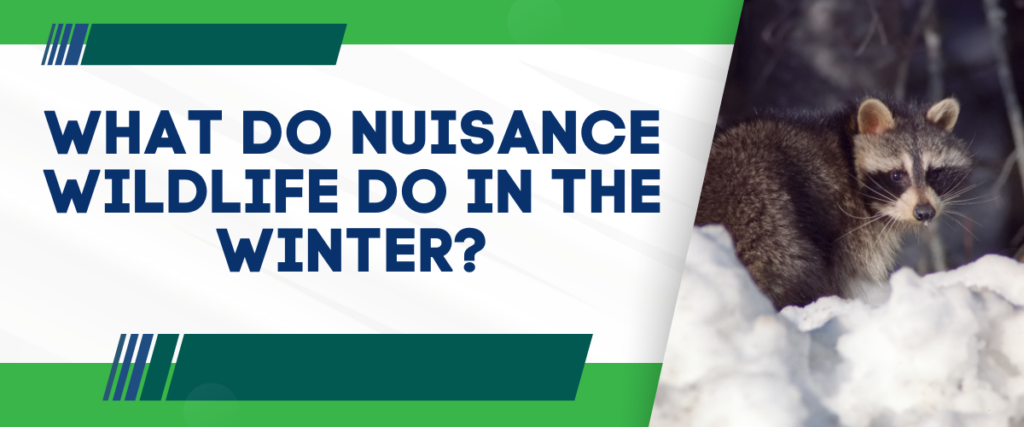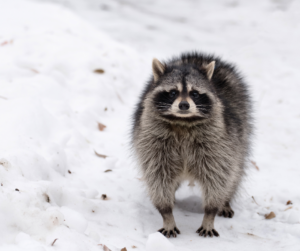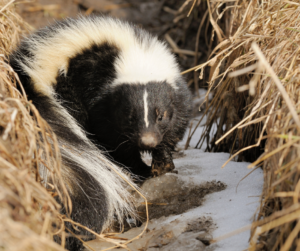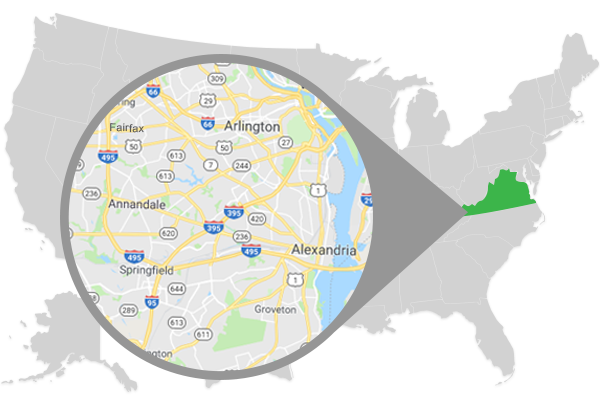
Wildlife like raccoons, squirrels, snakes, skunks, rats and mice are common nuisance animals that are known to invade your attic, crawl space, basement and yard. However, when the days get shorter, the insects go underground and the crops begin to die off, what happens to these animals? While some larger mammals like bears will hibernate throughout the winter, many of the smaller species of wildlife that infest the suburbs do not have that luxury, and will spend the entire winter searching for food and shelter, which could bring them right to your doorstep. If you have nuisance wildlife on your property, Summit Wildlife Removal can help. We offer wildlife trapping and removal, as well as exclusions and other preventative treatments to keep wildlife off your property in the Northern Virginia area.
Do Raccoons Hibernate?

Where Do Squirrels Go In The Winter?
Squirrels are small, arboreal rodents that subsist on nuts, seeds, insects and berries. Squirrels will spend the fall preparing for winter, building up multiple different stores of food called “caches” in areas surrounding their main nest. Squirrels will dig shallow holes to create their hoards or caches, filling them with birdseed, acorns, and other sources of food for them to dig up later. Squirrels will also bulk up throughout the fall, eating a lot and putting on pounds to build up their fat reserves that they can use for energy throughout the winter when food is scarce. The extra fat that squirrels put on can also help them stay warm throughout the harsh temperatures. Instead of hibernating, squirrels will stay active throughout the winter, and when conditions become too cold to go outside in, these rodents will sleep in their nests, occasionally sharing these nests with other squirrels in order to conserve body heat. Squirrels will also build their nests inside your attic, exploiting poorly screened gable vents and small cracks in your roof or soffit to get inside. Once inside, squirrels are known to soil your insulation and rip it up to add to their nests. Squirrels will also bring in outside nesting material, like dry leaves, sticks and moss, which can create a fire hazard.
Where Do Snakes Go In The Winter?
Snakes are reptiles that do not hibernate, but instead they brumate with several other snakes underneath the ground. Brumate is the reptile version of torpor, where their heart rate, temperature, metabolic rate and respiratory rate drops. The places where snakes brumate together is called a hibernaculum, and these hibernacula are often underground beneath the frost line. When hibernacula are located above ground, it can be inside large rotting oaks, wood piles, or even inside basements or cellars. When the temperatures rise again in the spring, snakes will emerge to begin hunting for food again.
Do Skunks Hibernate?

Do Rats and Mice Hibernate?
Rats and mice are some of the most dreaded house pests, so you might be wondering what happens to these destructive critters once the ground freezes over. Rats do not hibernate for the winter, and instead must keep active. Rats are entirely reliant on humans and manmade structures like buildings for food and shelter, and rats will die if they are cut off from these food sources, especially during the winter, as rats are not built for surviving the colder months. Rats will nest in large groups inside attics, crawl spaces, basements, chimneys, and wall voids. Rats will gnaw, chew and dig through insulation, wood and wires, which can cause expensive damage to your home.
Mice also do not hibernate, and they are able to survive in the wild better than rats. Mice can create burrows in the ground to survive the harsh temperatures of winter. Mice have a great ability to forage and hoard their food, but when the temperatures drop and food becomes scarce, mice will often make their way indoors, where they will dig burrows inside your attic insulation and feed on stored, dry, prepackaged food. Mice can also gnaw on wooden structures around your home and chew through the rubber covering that surrounds wires, which can lead to a house fire.
Preventing Wildlife in the Winter
If you have wildlife causing problems on your property in Northern Virginia, Summit Wildlife Removal can help. The key to dealing with wildlife problems is prevention. Animals are attracted to homes by sources of food, so removing any potential sources of food will prevent animals from nesting on your property. Some potential sources of food include unsealed trash cans, left out bowls of pet food, bird feeders, and spills/crumbs in the kitchen. For predators like snakes, a rodent infestation also provides a food source, so a rodent program is an effective method of getting a snake to move on from your home.
Wildlife exclusions are another great preventative method to keep critters off your property. Wildlife exclusions involve finding the entry points where animals are getting in, and sealing them off after the animal has been removed to prevent further re-entry. Poorly screened attic and gable vents allow bats and squirrels to get in, and raccoons can exploit tiny cracks or holes in your roof or soffit to get inside. Cracks in your home or foundation can let snakes and rodents in. Animals can exploit the tiniest cracks, so the best way to make sure that your home is totally sealed off is to call a licensed wildlife removal company like Summit Wildlife Removal to perform a wildlife inspection. Our technicians are expertly trained to locate any potential entry points and seal them off, protecting your home from raccoons, squirrels, snakes, bats, and more.
Animal in Attic Removal Near Me
During the winter, most nuisance animals in the suburbs will not be hibernating, and instead will be constantly active, on the move as they search for sources of food and warm places to wait out the weather in. If you have raccoons, squirrels, snakes, skunks, rats or mice causing issues on your property or in your attic in the Alexandria, Fairfax, Arlington or Fredericksburg areas, contact Summit Wildlife Removal today. We offer safe, humane wildlife trapping and removal, animal damage remediation, insulation removal, replacement and sanitization, wildlife exclusions, rodent treatments and more.



